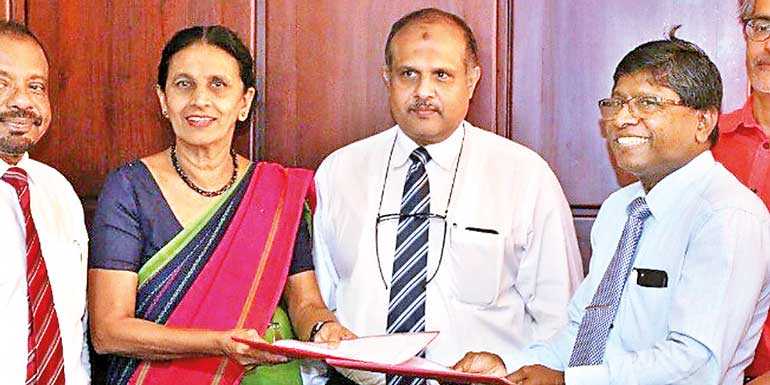Monday Feb 23, 2026
Monday Feb 23, 2026
Monday, 18 February 2019 00:03 - - {{hitsCtrl.values.hits}}


The World Bank Board has approved a Primary healthcare System StrengtheningProject (PSSP) amountingto $200 million for the GoSL. It has three components: (i) PHC system reorganisation and strengthening strategies through the routine health sector planning and budget execution systems; (ii) Project implementation support and innovation grant through direct project financing to MOH; and (iii) a contingent emergency response component as a way of reallocating or channelling funds in case of an emergency. The World Bank financing will be supplemented by the GoSL.
The first phase of Component (i) is to build capacity among medical officers to improve their competencies in the delivery of primary curative care based on the principles of Family Medicine/General Practice. The Ministry of Health and SLMA will be partnering with the College of General Practitioners of Sri Lanka (CGPSL) to train a group of 100 Medical Officers in the Kalutara District using the Distance Education (DE)format through the Digital Academy set up by the Ministry of Health. All logistical and academic plans including course content developed by a team of doctors from the SLMA and CGPSL is ready to be launched through the Ministry of Health Digital Academy by the third week of March 2019.
The documents pertaining to the pilot project to be launched in the Kalutara District was singed at a simple ceremony in the Council Room of the SLMA between the SLMA, World Bank and the College of General Practitioners of Sri Lanka on 11 February.
The PSSP aims to improve health and social protection systems to address the challenges of the demographic transition of the country. As NCDs impose pressing challenges in ageing populations with lifelong economic and health burden, healthy ageing is important in ensuring that working-age populations remain productive and healthy. One of the targets for 2030 under SDG 3 is to ‘reduce by one-third premature mortality from NCDs through prevention and treatment’.
Investment in early detection and management of NCDs which the primary focus of this project iscrucial to the achievement of this SDG target. The project also contributes to the SDG 3 target for Universal Health Coverage (UHC) – ensuring that all people have access to needed promotive, preventive, curative, rehabilitative and palliative health services, of sufficient quality to be effective, while also ensuring that people do not suffer financial hardship when paying for these services – by increasing the utilisation and quality of necessary primary healthcare services as well as ensuring the availability of essential medication (an Essential and/or Minimal Service Care Package)
Building of capacities of medical officers working in primary care settings is one of the main emphasis of PSSP.Aligning with the project objectives, capacity building of primary healthcare human resources has special focus on management of non-communicable diseases. The Sri Lankan Medical Association (SLMA) has already worked closely with MOH and other stakeholders to develop clinical teaching modules to be delivered in mixed mode. These now need to be further refined and assessed to ensure that they are aligned with the overall objectives of the PSSP.